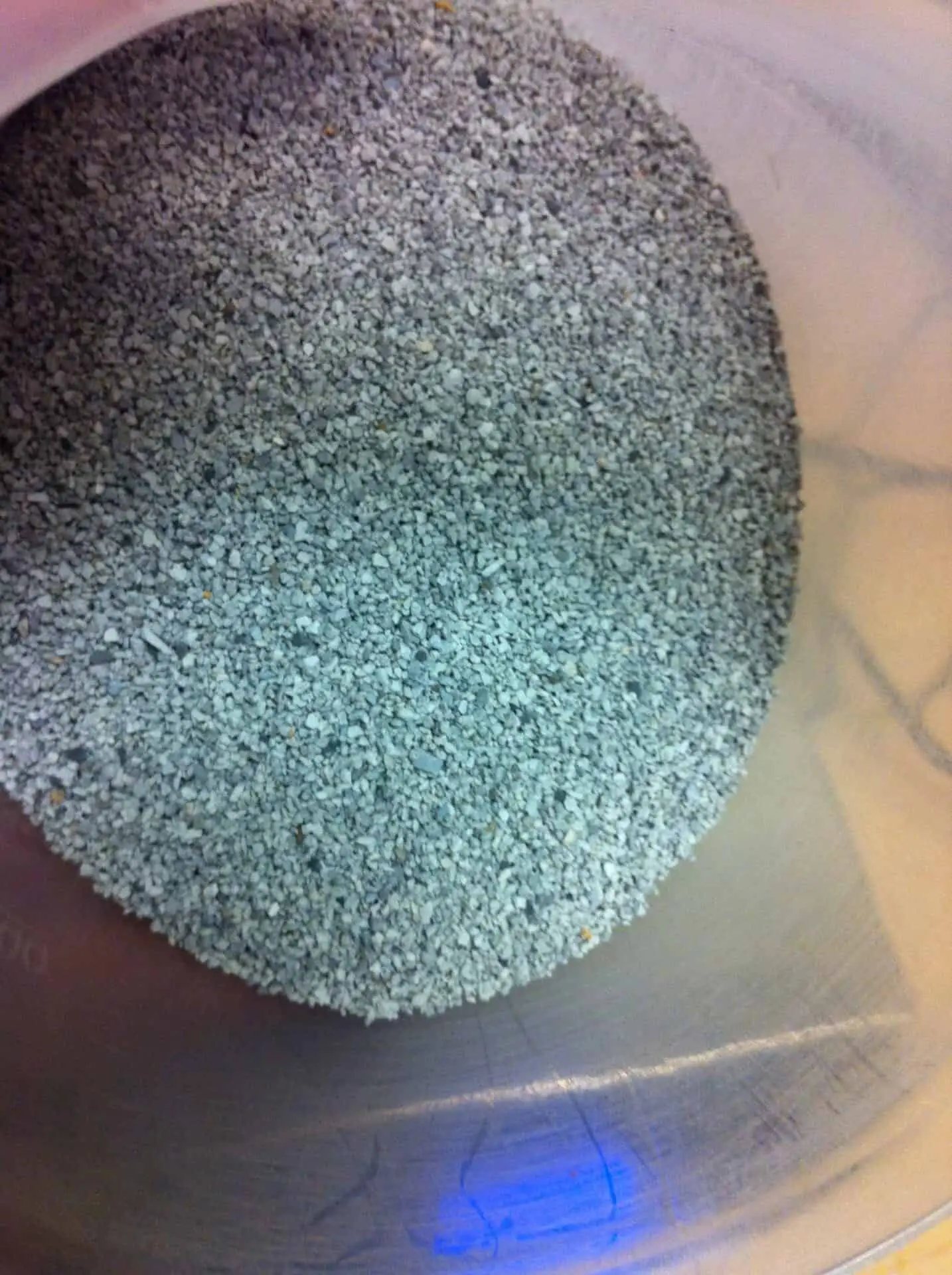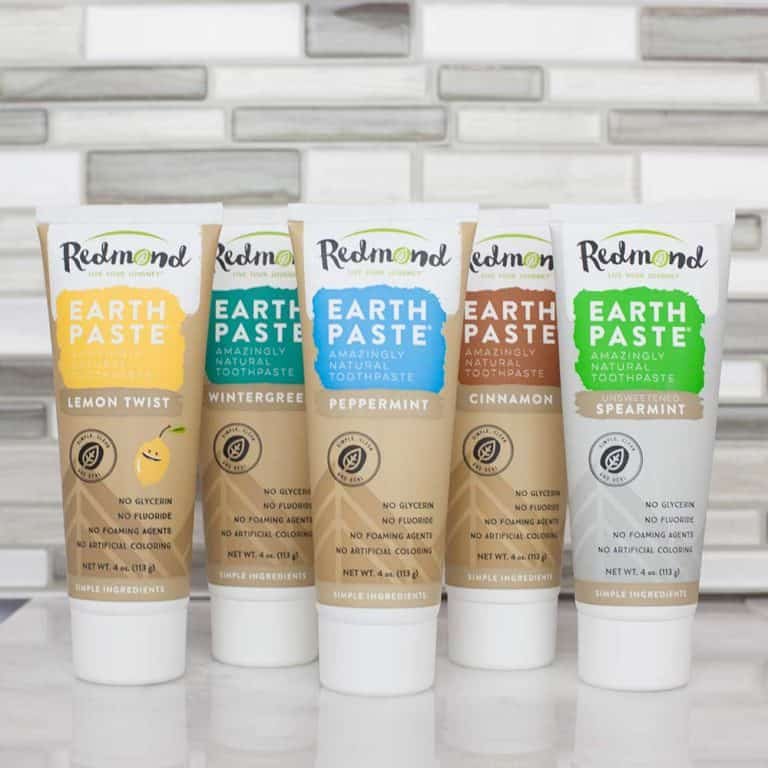Sounds pretty outlandish but there are a lot of people who use bentonite clay for teeth and gums on a daily basis. The main premise behind using this clay is so that it can pull all the toxins from the mouth and eject them from the body leaving the teeth and gums nice and healthy.
Nowadays there are many natural health products on the market which claim to do all sorts of wonderful things for our health, but can they be trusted?
Well, in this article, we will give you every little detail about bentonite clay and see whether it’s something to add to your oral hygiene routine or something to stay well clear of!
What Is Bentonite Clay?

Bentonite is a generic term for rocks that have been formed when a volcanic eruption has taken place. The ashes form disordered beds which form the solid particles. These are created when the magma is rapidly cooled while it is being ejected into the atmosphere.
When they are mixed with water, their structure changes depending on the environment. In acidic conditions they form into kaolinite, in a mildly alkaline environment they become smectite, and in highly alkaline conditions they turn into zeolites.
10 billion tons of bentonite is mined each year and can be found all over the world but the majority of its source (35%) is found in Fort Benton, Wyoming (USA).
It is effective in drawing out toxins from the body and is also known to have an abundance of minerals including calcium, magnesium, silica, sodium, copper, iron and potassium.
Ppacking Gums With Bentonite Clay
People have been using bentonite clay for centuries, and in some parts of the world, they even consumed the clay because they thought it would be good for them. Well, it turns out they were right!
Traditionally packing gums with bentonite clay worked wonders. Nowadays, people use it as a paste to help with digestion problems and cleansing the skin. It contains many properties ranging from:
- Antibacterial. Describes anything that can destroy or suppress bacteria and its growth
- Bactericidal. Another substance that can effectively kill bacteria and often also considered disinfectants, antiseptics, or antibiotics
These are thanks largely due to the different ions present within the clay. For example, silver ions have been used to treat wound infections, and urinary tract infections, whilst copper can be extremely potent against some microorganisms.
Other metallic oxides, including zinc oxide, magnesium oxide, and calcium oxide, have antibacterial activity with demonstrated effectiveness against E. coli and S. aureus.
This means you can use bentonite clay for gum infection or use bentonite clay for gum recession.
Bentonite Clay For Tooth Infection
The mechanism of Bentonite clay is high in ions, and when its administered to a specific area, there will be an exchange of ions from the target site. Some clays are synthetically produced with specific cations that are known to be an antibacterial inserted into the clay. This is then administered to the target site so the ions can be released and start working on the toxins or site of infection.
The toxins will be absorbed, but at the same time, the clay will release its antibacterial ions to help nourish the target area to keep it healthy.
Currently, the silver ion has been aggressively pursued as the best option to put into clays, but copper is being investigated and might be an alternative option.
Is Bentonite Clay Good for Teeth and Gums?
YES, there have been numerous studies carried out showing that clays have a good range of minerals and ions that can reduce the number of bacteria present in the mouth.
It has demonstrated antibacterial effectiveness against aerobic and anaerobic Gram-negative, and Gram-positive bacterial pathogens, including Pseudomonas aeruginosa, Porphyromonas gingivalis, Prevotella intermedia, Staphylococcus aureus, Streptococcus mutans, and Streptococcus sanguis and have been used in various dental applications.
This study showed that Zinc oxide had been used in a variety of dental composites to treat or prevent dental caries and as an endodontic sealer.
So, you can see that there is good potential for bentonite to be effective in helping to combat various oral health problems.
How to Use Bentonite Clay for Maximum Effect
Bentonite clay binds to unhealthy substances in the mouth, such as around the teeth and on the tongue and gums and helps to remove them before you swallow them and become sick. Because of bentonite’s antibacterial properties, it has been used in natural toothpaste and even mixed with water and used as a daily rinse.
Tooth Powder Or Toothpaste?
These are the most common ways people like to use the bentonite clay for their teeth. Both are good, but there are slight advantages to each one!

The Tooth Powder is pure 100% bentonite, which makes it highly concentrated and packed full of the vital ions that will help remove the toxins in your mouth. Not only that, but when you have the powdered form, there are so many ways you can use it apart from cleaning your teeth.
If you want to cleanse your skin, or maybe you want to consume it for digestive benefits, you can do that as well!
Bentonite toothpastes are not 100% bentonite. There are various other natural ingredients present in the paste to make it effective for the overall health of the mouth. If your Number 1 concern is to make your teeth and gums healthy again, going the toothpaste route is going to give you much faster results!
The Best Bentonite Brand for Teeth and Gums

We have searched all over the internet, and although there are many bentonite products on the market, our Number 1 choice is the Redmond Brand. The simple answer is that they create 100% natural products using the finest ingredients, and the price is also very reasonable.
They have a wide range of products ranging from pure bentonite clay to toothpaste. Different flavours make it appealing to a wider range of people.
As we have mentioned before, if you are solely looking for bentonite to help with your teeth and gum issues, then we highly recommend you try out their toothpastes.
Powerful Ingredients in Toothpaste!
Redmond only uses 4 Ingredients in their toothpaste:
Xylitol
By 2009, there had been over 500 publications on Xylitol alone, and it has been studied for nearly 50 years now. It was first researched in Finland but rapidly expanded all over the globe, and now the journals are dominated by non-Finnish researchers.
The reason for this kind of interest is due to early findings that pointed towards xylitol being an effective treatment/inhibitor of dental caries.
Essential Oils

Essential oils are highly concentrated liquids that contain the essence of the ingredient that they’re derived from. They’re being used more and more frequently as alternative forms of medicine. Essential oils have been proven to contain antibacterial, anti-inflammatory and antioxidant properties.
Real Salt
Real Salt is an all-natural unrefined sea salt harvested from an ancient ocean. It’s full of natural minerals that make it healthy, delicious, and pink or red looking. Salt makes you salivate, and your saliva creates an antibacterial barrier that protects your enamel.
Bentonite
There’s really no need to talk about the benefits of bentonite in this small section because if you can see, this whole article has been about this one powerful substance. If you want to know about its benefits, please read the whole article again.
Are There Any Dangers Associated with Bentonite Clay?

There was a slight concern about one brand of bentonite clay called: The Best Bentonite which was tested by the FDA and it was shown to have elevated levels of lead which may pose a risk of poisoning.
Exposure to lead can cause serious damage to the central nervous system, kidneys, and immune system.
In children, chronic exposure to lead, even at low levels, is associated with cognitive impairment, reduced IQ, behavioural difficulties, and other problems.
But luckily, we have chosen a company that has had no negative reviews in terms of any health-related problems after using their products; there’s no need to worry.
FREQUENTLY ASKED QUESTIONS
When it comes to maintaining healthy teeth and gums, people tend to ask a lot of questions because they want to be sure that they are doing the absolute best for their oral health.
For this reason, we have compiled a short list of some of the more commonly asked questions regarding bentonite clay for teeth and gums and well as general dental hygiene and health.
What is the difference between kaolin clay and bentonite clay?
The key difference between kaolin clay and bentonite clay is that the kaolin clay is formed as the result of aluminium silicate minerals while the bentonite clay is formed from volcanic ash in the presence of water.
Can gums grow back and heal?
Receding gums cause the gum tissue surrounding your teeth to lower its position on the teeth. When this happens, the root of the tooth can become exposed. Gums do not grow back; however, it is a condition that the dentist can correct and there are things you can do to prevent the condition from becoming any worse.
Is bentonite clay at all abrasive for teeth?
Bentonite clay is a mild abrasive. It gently scrubs and polishes the teeth without causing any damage. It works more like an astringent and effectively removes the tartar from the teeth while also cleaning the gums.
Is bentonite clay safe for someone with fillings?
Bentonite clay is used as a remineralizing tooth powder and is thought to be safe for use with fillings. It is even said that there is a chance the clay helps absorb the toxins that may be in the fillings.
What essential oils are best for dental health?
There are many essential oils that can be used in different ways to help with your oral health and hygiene. For example, essential oils that are known to help with bad breath and other dental issues are peppermint, tea tree, sage, myrrh, clove, and eucalyptus.
Does bentonite help with gum disease?
Bentonite clay is effective at helping clear up tooth abscesses and gum disease. It also strengthens the gums and decreases their sensitivity.
What Is the Process of Formation of Bentonite Clay from Volcanic Eruptions?
With the abundant market of toothpaste, one trend is to use charcoal in it. You might have come across advertisements that explain how activated charcoal triggers pulling the toxins from within, be it from skin or teeth. It has a high concentration of carbon.
Now consider Bentonite—apart from an epic origin story, it also has abundant minerals, as mentioned in the post. In addition, the clay texture entraps all the unhealthy bacteria in your mouth and teeth to remove them.
Bentonite has the upper hand because as it pulls out the toxins, it also releases its abundant minerals that work best for detoxification. Bentonite, which has silver ions, is considered the greatest weapon in the anti-bacterial fight. However, charcoal can be more abrasive than Bentonite, which might damage your enamel.
Will Using This Toothpaste Interfere with Oil Pulling or General Mouthwash?
Oil pulling is an amazing practice to cleanse your mouth, bad breath, prevent cavities, and overall gum health. It’s been advised to do this first thing in the morning. It is better to brush your teeth after that; this way, no two processes interject.
Moreover, brushing with bentonite toothpaste will make sure that the toxins are out for good. As for mouthwash, you have to use it after brushing your teeth, no major harm in that.
Are There Any Side Effects to This Product or Bentonite Clay?
As such, there are no major side effects from the component itself, but since it’s natural, the pure clay form might get contaminated in some form in contact with other elements. This is why we suggest using these processed toothpastes.
On the other hand, it’s been found that high levels of Bentonite may succumb to high lead content, further risking exposure to lead poisoning.
To avoid that, you have to make sure that any product you choose is FDA approved.
Final Thoughts
Bentonite clay has been used for centuries as a healing agent for conditions ranging from digestive problems and wound healing to skin cleansing and more. But more recently, we have come to learn about the powerful ions contained within this clay.
The silver cation is of particular importance because it has shown to be a powerful antibacterial helping to eliminate the bad bacteria from the mouth.
Bentonite is best used as a powder or toothpaste because it can be in direct contact with the target location. When this happens, it will start to absorb the toxins from the mouth and release its own minerals, which will help to rebuild the teeth and gums.
There are various different brands out there claiming to be the best but, in our opinion, as long as the bentonite is pure and comes from a reputable place like Fort Benton, Wyoming (USA) you can be sure that it will work well.
Our personal choice is Redmond because their toothpaste contains other powerful ingredients such as xylitol, essential oils, and real salt.
All of these combined together will give your mouth that extra needed protection!
Share Your Experience
Have ever tried bentonite clay before? If so, please share your story with us. Did it help you in any way, or was it a complete waste of time?

Related Post: Sumigaki Japanese Charcoal Toothpaste
